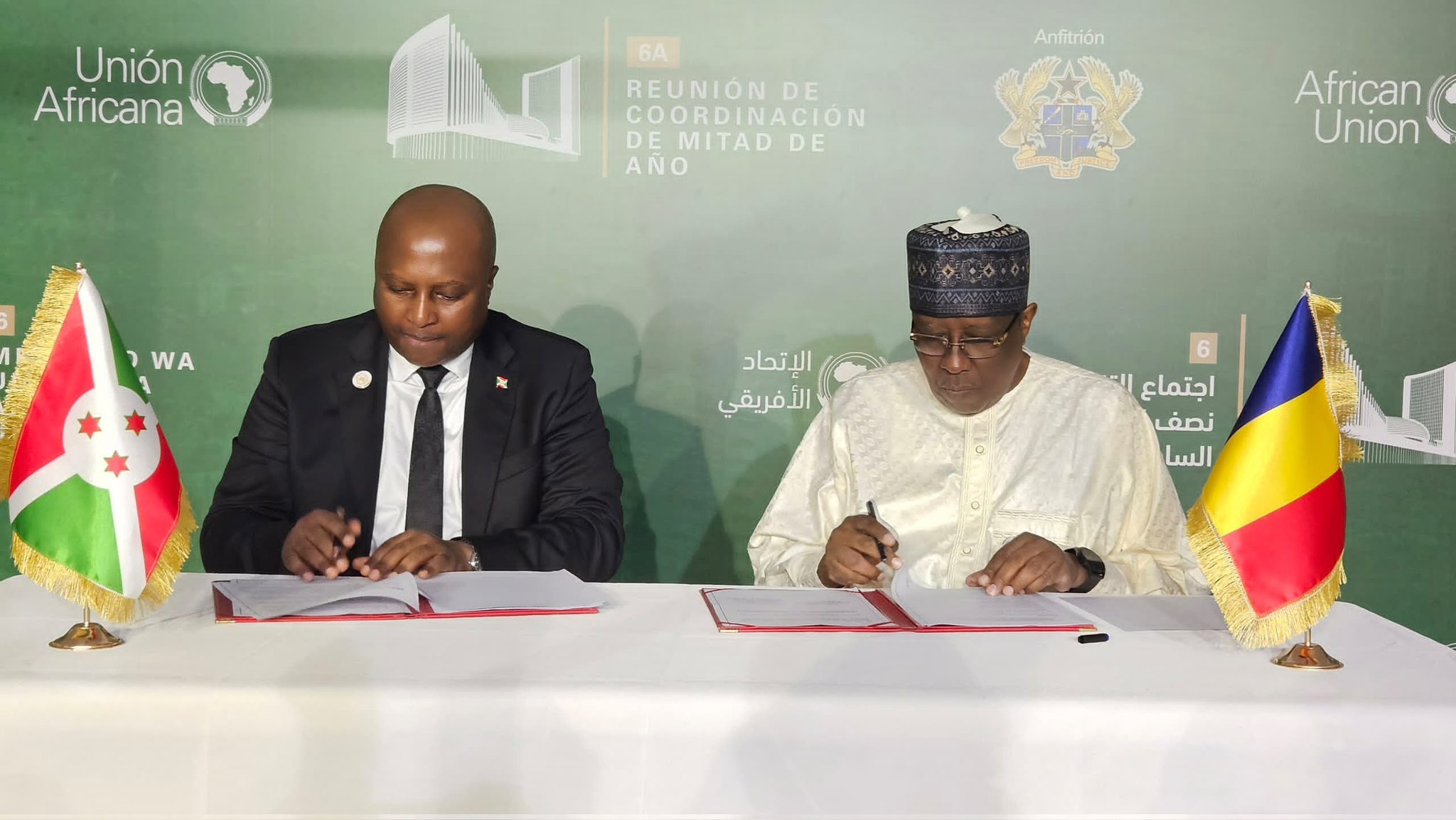
Chad’s ruling Patriotic Salvation Movement (MPS) and Burundi’s National Council for the Defense of Democracy – Forces for the Defense of Democracy (CNDD-FDD) have formalized a strategic political alliance, marking a significant step in regional cooperation.
The memorandum of understanding was signed on Friday, August 29, 2025, in Gitega, coinciding with the 20th anniversary of the CNDD-FDD’s accession to power.
The agreement brings together two of Africa’s longstanding ruling parties, aiming to foster collaboration on governance, development, and security.
The respective secretaries-general of the parties, Aziz Mahamat Saleh of the MPS and Révérien Ndikuriyo of the CNDD-FDD, led the signing ceremony.
“This alliance aims to strengthen friendship, exchange good governance practices, and promote development in key areas such as youth, education, peace, and security,” they stated.
Officials highlighted that the partnership is grounded in a shared history of struggle for sovereignty, and positions both parties as advocates for South-South cooperation. The agreement underscores a commitment to exchanging experiences in governance and leveraging collective expertise to address regional challenges.
Observers note that the alliance could have wider implications for political and economic collaboration across Central and East Africa, strengthening ties between nations with historically close, yet underutilized, political relationships.
It is expected to facilitate dialogue on security coordination, youth engagement, and sustainable development initiatives in both countries.
By framing this pact around governance and development, the MPS and CNDD-FDD are signalling a strategic approach that goes beyond ceremonial diplomacy.
The alliance reflects a recognition that political stability and regional cooperation are increasingly intertwined, particularly in the context of security threats and socio-economic challenges in the Sahel and Great Lakes regions.
This agreement comes amid broader shifts in African political landscapes, as states seek collaborative frameworks to address internal and cross-border challenges.
Analysts suggest that the Chad-Burundi alliance could serve as a model for similar partnerships aimed at consolidating regional stability, sharing governance strategies, and enhancing development outcomes.
As the two parties embark on this joint venture, attention will turn to how effectively the alliance translates into tangible policies and initiatives that benefit citizens, strengthen bilateral relations, and contribute to broader regional peace and prosperity.



